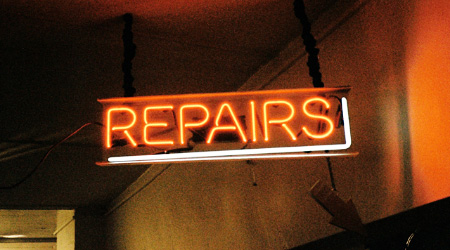Credit Repair: What Is The Average Credit Score?

The credit score for an consumer is a key piece of information lenders and financial institutions use when deciding to issue credit or extend loans. Many consumers don't know what their current credit score is or how it affects their ability to use financial tools like an auto loan or store credit card. Not only that, but if a credit score is too low it can limit obtaining gainful employment or ability to rent an apartment. The average credit score in the United States is roughly 690 out of the maximum of 850. Fortunately, various steps can be taken to repair credit and increase a credit score for little to no cost in money or time.
What is a Credit Score?
A credit score is a summary of an individual consumers credit behavior and financial judgment over time. Credit scores are provided by the three credit reporting bureaus which are Experian, Equifax and TransUnion. Credit scores are not provided with the credit report which is available for free to consumers once every 12 months. It can be purchased separately and should be done periodically to see where your credit score falls in the hierarchy of credit score ranges. A credit score consists of various attributes such as payment history, debt utilization, available credit, credit mix and credit age. Each of these categories have different weightings and affect your credit score based on importance.
Benefits of Above Average Scores
Since the average score is about 680, it is important to understand why it is better to be above this average when seeking credit. Benefits of above average credit scores not only mean access to more credit opportunities such as obtaining a mortgage or auto loan but also what interest rates you pay. Banks and credit unions are always looking to extend credit and issue loans to consumers. Some consumers however are at greater risk of default as illustrated in a credit history. Two consumers may get the same loan for the same amount but the differentiating characteristic will be what interest rate they pay. A poor credit score will result in a higher interest rate leading to thousands of extra dollars in interest expense over the life of a loan.
Who Uses Your Credit Score?
Credit scores are used for more than just issuing credit and making loans by banks and credit unions. Tenants looking to rent an apartment will often need to provide access to their credit report. Prospective landlords are looking for legal judgments and poor payment histories as it may provide insight in to how a tenant will treat the property. Employers use credit histories and credit scores when looking for responsible employees, especially those which may be handling money such as a bank teller. Average and above average credit scores significantly increase the chances of being approved as a tenant or being made a job offer.
Improving Your Credit Score
Knowing how important this number is will hopefully lead consumers to take proactive steps in repairing their credit scores. Credit repair to improve your credit score can entail simple steps like making consistent monthly payment and correcting inaccuracies to paying off excessive debt. Time is the only fix for certain black marks like legal judgments, foreclosures and charge-off accounts. Regardless of what issues appear in a credit history, try as much as possible to maintain an average credit score at a minimum.







